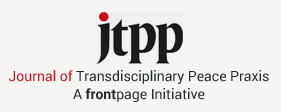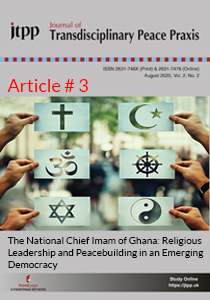Description
The National Chief Imam of Ghana: Religious Leadership and Peacebuilding in an Emerging Democracy
Okechukwu C Iheduru (Professor of Political Science in the School of Politics and Global Studies at Arizona State University, USA)
Analyses of the complex relationship between religion and social conflict rarely explore the contributions of religious leaders in deepening existing peaceful social order and/or preventing the eruption of violent conflicts or wars.
In Ghana—a relatively peaceful, Christian-majority country—the peace praxis of Sheikh Osmanu Sharubutu, its National Chief Imam, has been instrumental in expanding interfaith harmony, ending frequent and bloody intra-Muslim conflicts, and further preventing the eruption of violent conflicts.
Ultimately Ghana has witnessed proliferation of ex-African ‘fundamentalist’ religious actors and transformation of educational institutions into sites of inter and intra-faith rivalry. Moreover, some of the Sheikh’s advocacy activities about social issues grounded in the ‘accommodative’ indigenous values in turn lead to social exclusion and/or violence against certain marginalised minority communities. These contradictions and developments further challenge the binary and essentialist opposition in peacebuilding.
This case study suggests that charismatic religious leadership that fails to address the root causes and effects of conflict is as much of a threat to the establishment of durable peace as the withdrawal of international peacebuilders is to the recurrence of violence.





